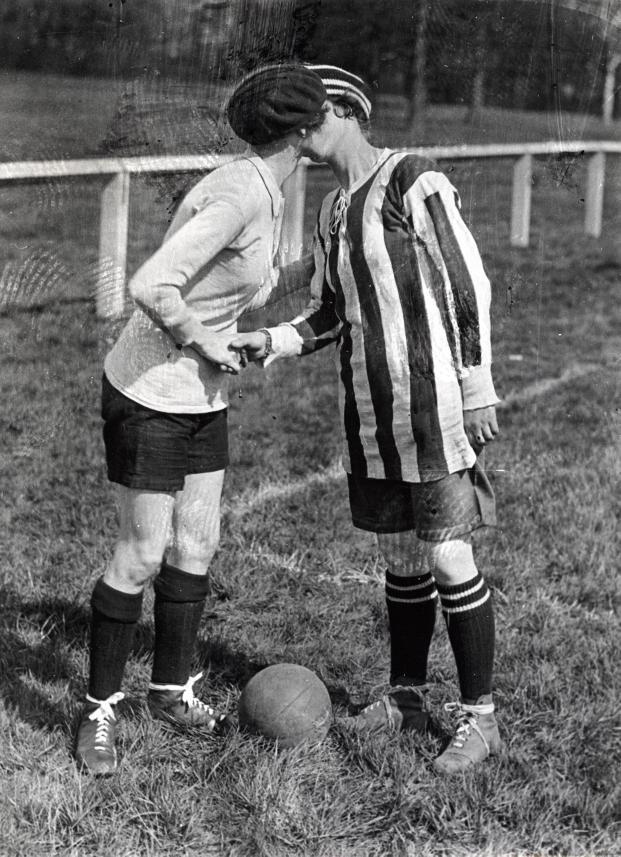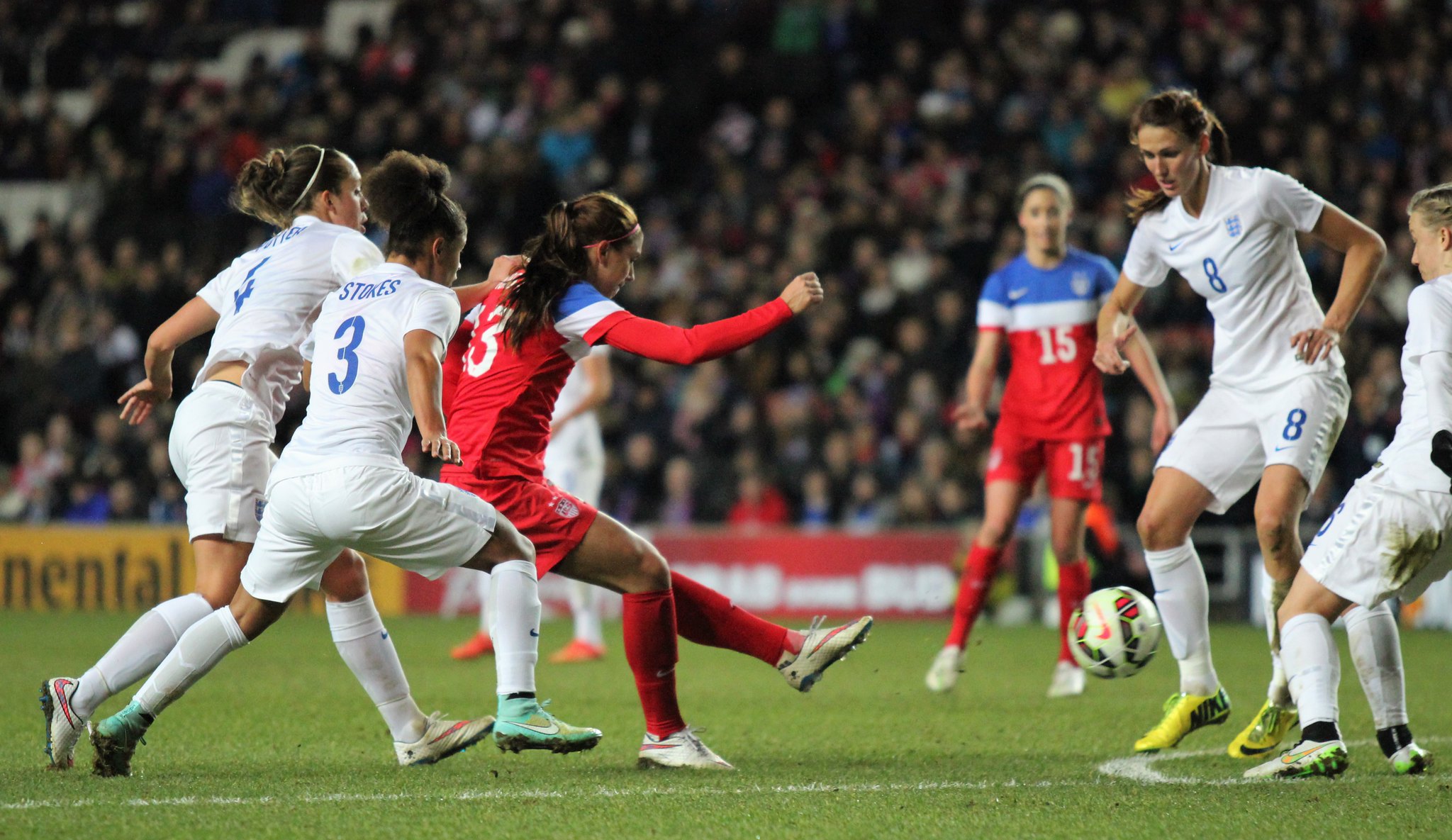The Women’s World Cup kicks off in France on Friday (June 7) and England, ranked third in the globe, has a real shot at winning. But, did you know that the Football Association (FA) actually banned women’s football in England for 50 years?
Picture the scene: It’s 1920 and tens of thousands – around 25,000 in total – are packed into a ground at Deepdale, now the home of Preston North End, to watch the infamous Dick, Kerr Ladies FC, one of the earliest known women’s association football teams in the UK. The side was taking on a team from Paris in what is believed to be the world’s first international women’s football game, having been formed three years earlier in World War I by the workforce at Dick, Kerr & Co to raise money for wounded soldiers.
After winning 2-0, the squad played a few more matches before going on tour in France, where their success was covered by the national press there. Meanwhile, back home in the UK, word had got around about star players like winger Lily Parr and midfielder Alice Woods, who became a draw for the club’s matches. By the end of 1920, Dick, Kerr Ladies had amassed a huge fanbase. This culminated on Boxing Day in 1920, when the team attracted a crowd of 53,000 for their match against St. Helen’s Ladies at Goodison Park, Liverpool.
Complaints having been made as to football being played by women, Council felt impelled to express the strong opinion that the game of football is quite unsuitable for females and should not be encouraged,
a resolution passed by the FA’s Consultative Committee.
But, less than a year later, Dick, Kerr Ladies’ momentum was stopped in its tracks. The increased popularity of women’s football had not gone without opposition. On 5 December 1921, the FA banned women’s football at all of its grounds, and stripped all-female clubs – including Dick, Kerr Ladies – of their official recognition.
“Complaints having been made as to football being played by women, Council felt impelled to express the strong opinion that the game of football is quite unsuitable for females and should not be encouraged,” read a resolution passed by the FA’s Consultative Committee at the time.

The captain of Dick,Kerr Ladies kisses the captain of the opposing team ahead of a match in 1920. Image Credit: Nationaal Archief / Flickr.
The FA’s ban would stay in place for fifty years, finally being repealed in 1971, and was a huge setback for the women’s game in England.
“It changed the course of the game forever, really,” says Gail Newsham, one of the first people to document the history of the club in her 1994 book In a League of Their Own! the Dick, Kerr Ladies 1917-1965. “Loads of teams folded after the ban because they had nowhere to play.”
While clubs like Dick, Kerr Ladies continued to play under the radar – until the club disbanded in 1965 – on non-FA grounds, the women’s game did not receive the same traction as it did at its peak. “That’s why people still think today that women shouldn’t be playing football because generations of people have been brought up to believe that,” adds Newsham.
Eventually, with more and more women playing football despite the prohibition – and with the formation of a separate group called the Women’s Football Association in 1969 – the FA repealed the ban in 1971, after also coming under pressure from UEFA. However, even after the FA’s policy was revoked, women’s football was left by the wayside, with the FA only stepping in to provide funding for the sport in 1993.
Still, it’s not all doom and gloom.
Introduced in 1979, Article 10 of the Convention on the Elimination of All Forms of Discrimination against Women requires states to offer “the same opportunities to participate actively in sports and physical education”.
And since 1993, the women’s game has come on in leaps and bounds. Recent years have seen big progress for the sport. Formed eight years ago, the Women’s Super League (WSL) became the first fully professional women’s league in Europe in the 2017-2018 season. And, in March, Barclays became the WSL’s first title sponsor in a three-year deal (believed to be worth more than £10m). What’s more, the England team, nicknamed the Lionesses, are set to dazzle at this year’s Women’s World Cup. They are ranked third in the world – one place higher than their male counterparts.







